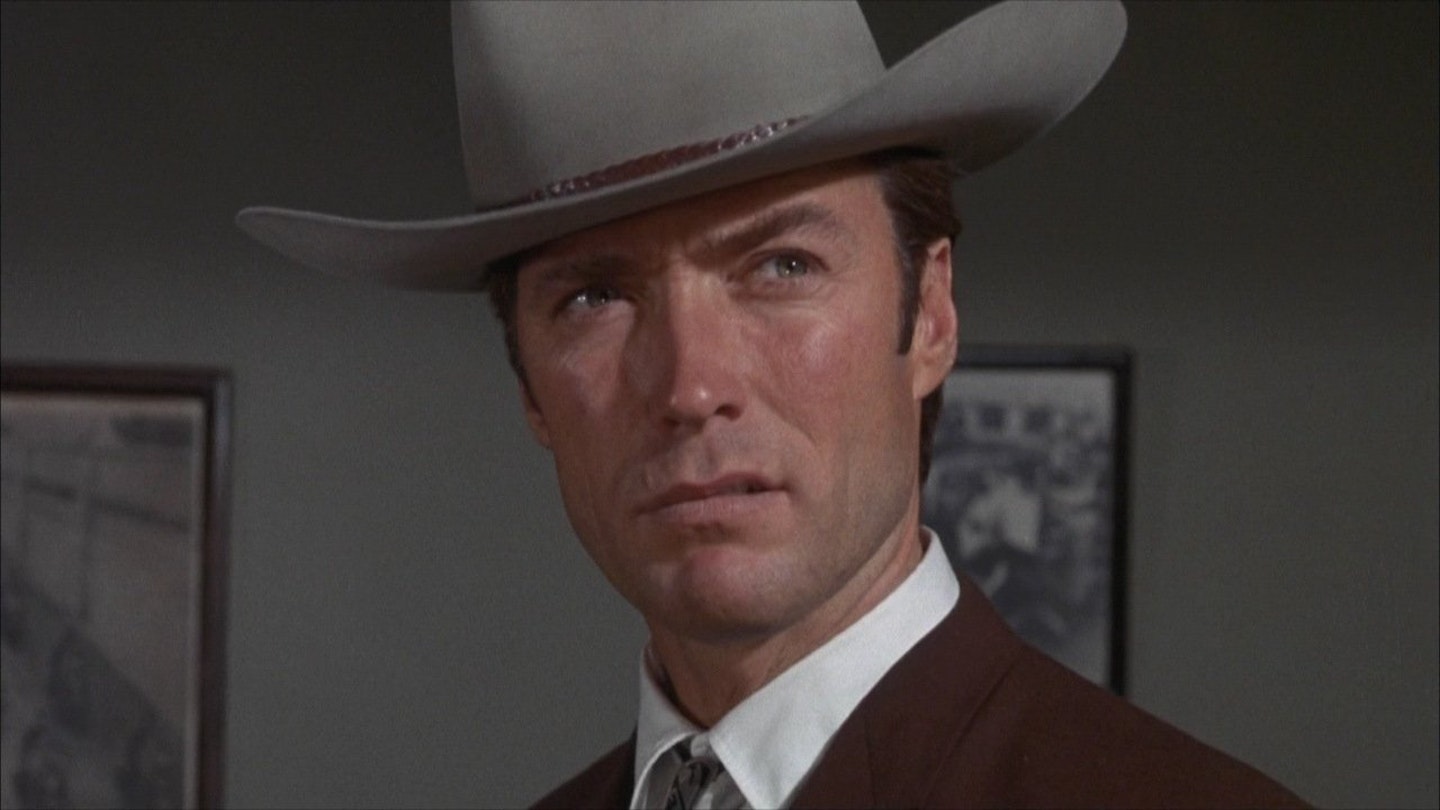'A man's gotta do what a man's gotta do,' sneers cigar-chomping urban cop Lee J. Cobb at tight-lipped Deputy Coogan (Eastwood) when he declares his intention to track down a runaway hippie troublemaker as if he were pursuing an outlaw in the desert.
This is a key movie in the evolution of the cop picture and of Eastwood’s star image, offering an odd parallel with Midnight Cowboy as the straight-looking, cowboy-hatted hero is treated as a joke by the kooks, deadbeats and freaks of the city, who sneer at his John Wayne values, prehistoric sexual attitudes and faintly campy boots.
Don Siegel's second great New York cop picture, following Madigan, this is also a rough draft for the San Francisco-set Dirty Harry. It’s a transformed Western, with Eastwood's straight-shooting but uptight cowboy policeman stalking in a stetson through the Pigeon-Toed Orange Peel freak-out club (one of the great 1960s scenes – featuring psychedelic lighting effects and bikini girls dancing in cages with peace symbols written on their tummies), casting disapproving sneers at social workers and flower children, and corraling his fugitive after an exciting motorbike chase in Central Park.
He proves that his old-style heroism still plays in the ‘60s, but softens his dead right values enough to show some sympathy for his battered captive. The cowboy cop-out-of-water theme was reprised, in more gentle mode, in the Dennis Weaver TV series McCloud, but has been reworked, in increasingly bizarre disguises, in the likes of The French Connection II, Brannigan, Cruising, Beverly Hills Cop, Red Heat and Black Rain.
